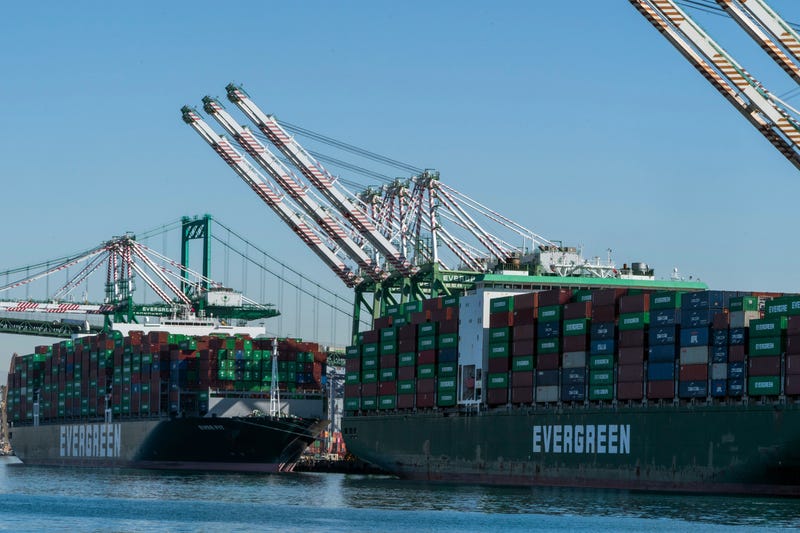
SINGAPORE (KNX) — Fewer ships and halted work led experts to believe that pollution emissions at shipping ports around the world had decreased due to the COVID-19 pandemic — and data from the NASA Earth Observatory seemed to support that thought.
However, researchers in Singapore said new research shows that port emissions sharply increased due to the backlog of ships.

“Emissions were modelled to have more than doubled during the pandemic period, while they increased twofold in Los Angeles, almost two-thirds in Long Beach, California and over a quarter in Hamburg, Germany,” researchers at Nanyang Technological University said in a statement.
The sharpest increases were among container ships and “dry bulk carriers,” according to the new data, which showed an average increase of 94% for the ships and 142% for the carriers compared to pre-pandemic levels.
Emissions from July 2020 to July 2021, the height of the pandemic, were studied to gather the data.
With it, the research team found that emissions increased by nearly 80% due to what we’ve already seen at the ports of Long Beach and L.A. — ships spending longer-than-normal times waiting to get into and out of the docking areas.
“Our study highlights that ships emit the most pollutants during hotelling, that is when they are berthed while awaiting either cargo load, cargo discharge or their next voyage,” Liu Jiahui, a PhD student from NTU said.
“This would suggest the need for suitable policy responses and measures to mitigate the impacts of idling ships on air quality.”
Based on their research, NTU said it doesn’t believe that the increased emissions will decrease in the foreseeable future. And with an ongoing pandemic, the longer wait times are needed, researchers said, and likely won’t be changing anytime soon.
“Our scenarios have drawn attention to a shift in the overall emission pattern during the pandemic period compared to pre-pandemic levels,” NTU Professor Adrian Wing-Keung Law said.
“We hope that the results can assist in the development of countermeasures and compensatory plans to mitigate the impacts in a post-COVID future around the world, especially in the current highly volatile shipping industry,” Keung continued, adding that to meet those goals, “radical changes” to ship engines and fuel sources would be needed.
His research team noted that such tasks are being pursued in Singapore, to help solve the emissions crisis.
To read the NTU’s full study, click here.

